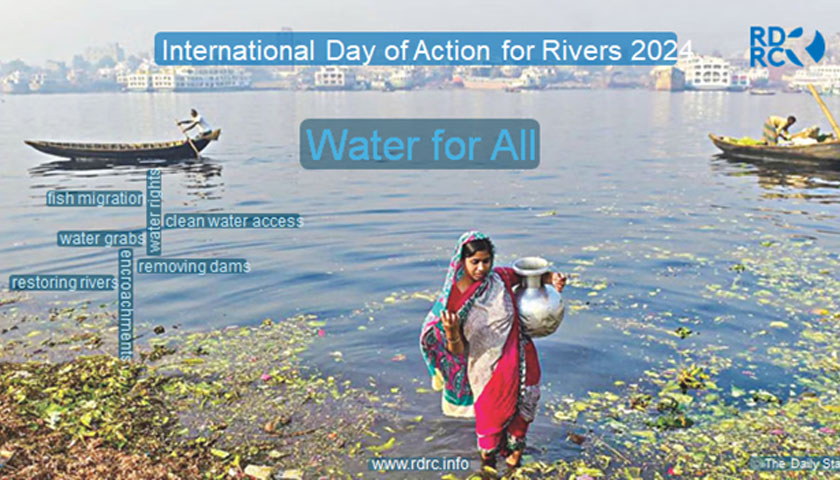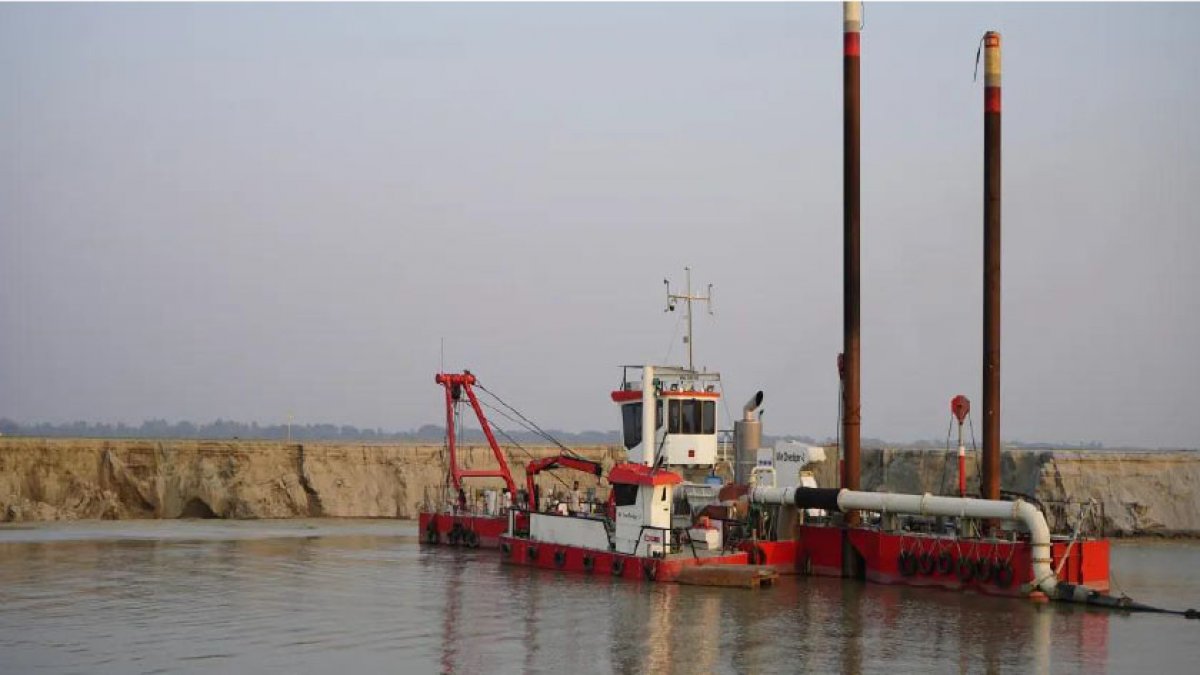Although rights of rivers have been legally recognized in Bangladesh, protection for rivers in practice is not guaranteed. More importantly, the current legal framework misses the cultural and indigenous epistemic foundations for ‘nature’s rights’ in the Bengal Delta.
Granting legal rights to rivers poses a formidable challenge to effective water governance. In the absence of adequate measures fostering the connection between communities and their natural surroundings, and the reinforcement of cultural values, the introduction of new legal rights for rivers may have unintended consequences.
There is a risk that legal reforms aimed at affording rivers enhanced protections might inadvertently result in a weakening of such safeguards, apprehends River and Delta Research Centre (RDRC).
The organisation calls on policymakers to articulate a clear understanding of the role that these newly designated legal entities will assume in the realm of water governance. The notion of providing rivers with a 'voice' becomes pertinent only when there is an expectation that they will actively compete for their own outcomes. However, this approach could be construed as an evasion of our responsibilities in environmental protection, as it implies a reliance on rivers to autonomously safeguard their well-being.

To ensure river rights, it needs an explicit voice to protect rivers, community support for why rivers need protection, adequate funding and organisational support for river guardians/NRCC etc, enforced decisions and regulations, and supporting legislation in all riparian countries for international rivers.
Creating legal rights for nature more broadly has been considered by many environmental advocates and legal scholars as a step towards the protection of natural resources, although this remains controversial.
Modern societies protect natural resources through laws and regulation, with varying results. Conferring legal personhood, granting rights to rivers or giving rivers explicitly a voice in decision making may be the next evolutionary step. Granting legal rights supplies a method to highlight the imperative of enhancing river protection and can be effective depending on the specific local circumstances.
The personification of nature is not new. Humans have long considered natural elements as living entities. Nevertheless, the earth, ocean, rain, rivers, and lakes were traditionally remained far beyond the legal frameworks. By affording rivers legal personhood, the law acknowledges them as entities with enforceable rights.
WHAT DO RIGHTS OF THE RIVER MEAN?
Granting rivers legal rights means the law can recognize them as legal persons, allowing rivers to take legal actions to enforce those rights. Legal personhood confers standing, often described as the ability to sue and be sued, enabling rivers to go to court to protect their rights.

WHY DO RIVERS NEED RIGHTS?
The existence of protective legislations does not prevent rivers degradation. This legal recognition could manifest in several ways:
• Enabling rivers to engage in water and ecosystem services markets, thereby integrating market environmentalism principles.
• By giving rivers equal legal status with humans (eco centrism).
• By giving rivers their own voice in policy debates.
Legal person bears rights and duties in law, akin to corporations, public agencies and civil associations.
Legal personhood typically confers:
• The right to enter into and enforce contracts;
• The right to own and manage property; and,
• Legal standing to initiate legal proceedings (and be subject to legal action) in a court of law.
WHAT DO LEGAL RIGHTS ENTAIL?
Legal standing implies that a river, as a legal entity, can pursue legal action to safeguard its interests without the necessity of resulting harm to human users.
Acknowledging rivers a legal 'voice' in contentious policy and regulatory discussions requires:
1. A river's voice must be empowered to a level where it is effectively heard, with its guardians supplied with sufficient funding, distinct identity, and autonomy from governmental, societal, and economic influences.
2. A river must promote its own interests ahead of those who rely on it. This may entrench an adversarial relationship between people and the environment.

Recent decisions to grant rights to rivers may in principle fill gaps in environmental regulations and represent a more progressive approach to (re)bounding humans with nature.
THE PARADOX OF LEGAL RIGHTS
Shifting narratives can drive legal reform that can weaken the new legal right.
The experience of the new river persons raises crucial questions for water governance: What role do we expect rivers with legal rights to play in integrated water resource management? Rivers have traditionally been protected in water law to varying extents as legal objects, but when they have a voice of their own, they acquire the capacity to complete for policy outcome with other issues. This fundamentally changes their roles and responsibilitie in water governance framework.
RIVER RIGHTS NEED SUPPORTIVE STAKEHOLDERS.
The power of expressing community’s democratic right of raising voices is required. Successful collaboration with NRCC and stakeholders, communities, CSOs, and NGOs engagement with local communities bolsters the legitimacy of the initiatives results in the guarantee of legal rights to rivers.
CRITICAL SITUATION MAY ARISE FOR THE CLAIMS FOR RIVER RIGHTS.
The appointment of government representatives as guardians e.g. NRCC in Bangladesh introduces the risk of conflicts of interest, particularly when economic imperatives or human rights priorities clash with the asserted rights of the river.
Acknowledging the rights of nature, particularly recognizing those river rights in this declaration, should bolster the formation of a new legal and social discourse depending on residing in harmony with nature and valuing nature’s rights together with human rights and rights of indigenous peoples.
Granting rivers legal rights, either directly or indirectly, generates a paradox. Constructing the rivers as a legal person increases the legal powers available to help protecting the rivers from future impacts. However, in doing so, it strengthens the narrative that the river should protect itself and weakens the narrative that the river is worthy of protection by human action.
Granting legal rights adds value into the right framework:
• Declares that all rivers are entitled to the fundamental rights set forth in this Declaration, which arise from their very existence on our shared planet.
• Further declares that all rivers are living entities that possess legal standing in a court of law.
• Establishes that all rivers shall possess, at least, the following basic rights: a. The right to flow; b. The right to perform necessary functions within its ecosystem; c. The right to be free from pollution; d. The right to feed and be fed by sustainable aquifers; e. The right to native biodiversity; and f. The right to restoration.
• Settles that all rivers shall have their best interests valuated and considered as a dominant consideration by both government and private entities in all actions or decisions that warn them.
• Asserts that these rights are intended to guarantee both health of rivers and river basins.
• Assures that all nations shall execute these rights entirely within a reasonable amount of time, including by developing and performing metrics and thresholds corresponding to the newly scientific understandings of integrated ecological river health.
• Strongly urges all nations to guarantee prompt and financial processes to recognize these fundamental river rights, as well as the right of all rivers to restore.
However, granting rivers legal rights will not, à priori, overcome the limitations of existing instruments, but could add value with the right frameworks.





